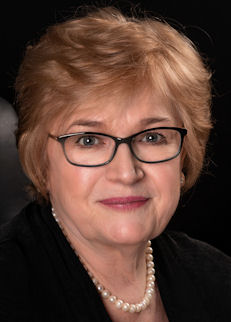Naming Ceremonies
Naming
Ceremony for a Child
The research appears to strongly
support the conclusion that same-sex couples
foster the same wholesome environment as
opposite-sex couples and suggests that the
traditional notion that children need a mother
and father to be raised into healthy, well-adjusted
adults is based more on stereotype than anything
else.
- Footnote 26 of the Iowa Supreme
Court decision on same-sex marriage
Naming Ceremonies (sometimes called namegiving
ceremonies) are highly personal and meaningful family
occasions. Usually the centrepiece of a much wider
family event, the naming day, it might also be part of
your child's first birthday celebration.In the ceremony we celebrate the birth, the birth plus reaching the milestone of the first birthday, or the adoption of your child and express your personal values and your commitment to parenting your child.
A naming ceremony can also be held to celebrate other situations such as fostering or the creation of new family relationships through a couple entering into a lifelong partnership.
While fees and services of celebrants vary widely, you would expect to pay a higher fee for a custom-created ceremony with substance that, through both its language and its style reflects who you are, and creates a blueprint for your parenting of your child. Because there is no legal requirement for authorisation to perform a naming ceremony, there is wide variation in experience and skill among naming celebrants. This truly is a situation where you won't get what you don't pay for and may bitterly disappointed if not horrified by what an unskilled person says and does at the ceremony, particularly if he or she mindlessly ignores your personal situation and uses standard material lauding the importance of opposite sex parents and traditional families.
Unless you specifically request religious inclusions I assume that the naming ceremony will be secular. However, if you wish to include some religious references or contact you may. This may be a good compromise where you yourselves are not religious but someone important to you is. Or it can be a way of acknowledging dual religious or cultural heritages within a largely secular (non-religious) ceremony.
The ceremony itself performs no legal function. It does not replace your legal obligation to register your child's birth with the Registry Office. Where you choose to call the adult sponsors you appoint guardians rather than godparents, mentors, or other term, the appointment as part of the ceremony is neither legal and binding. To nominate legal guardians you need to include that nomination in your will. A solicitor can provide advice about how to do this.
A naming ceremony does, however, perform a very important social function.
- It provides a formal opportunity for you to publicly clarify to your community of family and friends how you want to support your child as he or she grows
- It joyfully welcomes your child to the family and to the wider community
- It provides an opportunity to share the wonder, joy and pride you feel
- It is a reminder of the great responsibility involved in raising a child
- It is a formal mechanism to appoint godparents (defined in modern dictionaries as someone who acts as a godparent or is a sponsor or protector - other terms can be used) and honour other significant adults, such as grandparents, who will have important roles in the nurturing and supporting the child
- It provides you, as the parent(s) with an opportunity to acknowledge your gratitude to family, friends, and particularly godparents (also called guardians, sponsors, mentors, guideparents. life guides or any term you choose) for their involvement in your child's life
- It provides a formal opportunity for significant adults to commit to supporting and nurturing the child and each other.
There are no age limits. You can hold a ceremony for a young baby, at any time during the child's first year, or, as is very common, in conjunction with the child's first birthday celebrations, or when the child is older. Each age has its special characteristics. Where the child is older he or she should be included in the ceremony planning process so that his or her own views about what is said and done in the ceremony are taken into account.
A naming ceremony can also be held in conjunction with a marriage ceremony, a commitment ceremony, or a reaffirmation of vows.
Naming ceremonies are suitable for natural or adopted children of families of all kinds. A variation on a naming ceremony can also be used to embrace a child of your partner by a previous relationship.
The value of the ceremony is in the ceremony itself, in the way it can strengthen the bonds between parents and the child(ren),parents and grandparents, parents and other supporting adults, <>significant adults and the child(ren).
When you do me the honour of choosing me to be your celebrant, I can guarantee that you will have a naming ceremony that is personal, inclusive and relationship-strengthening, light-hearted in the appropriate places, and authentic to your beliefs and values
At the ceremony you will receive a beautifully presented keepsake copy of the ceremony and a naming certificate tailored to the number of godparents, guideparents, mentors (you choose what you wish to call them) and to your family situation.
Other items I bring with me to enhance your ceremony include rose petals, gum leaves, or basil leaves to use in naming your child, a container to hold these, a naming register, a quality pen for the signing.
Creative use of symbols such as candles, wishing stones, trees, mementos, gifts, items of family significance, together with innovative inclusion of references to your child's ancestry and cultural background are a feature of all of my ceremonies.
more information about Naming
Ceremony Packages ...
more information about DIY Naming Ceremonies ...
more information about DIY Naming Ceremonies ...
